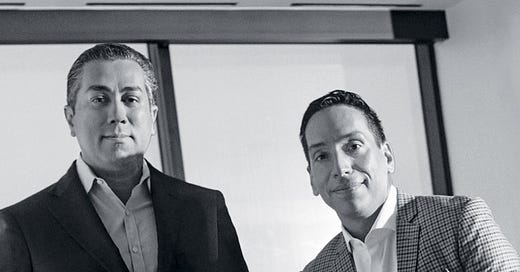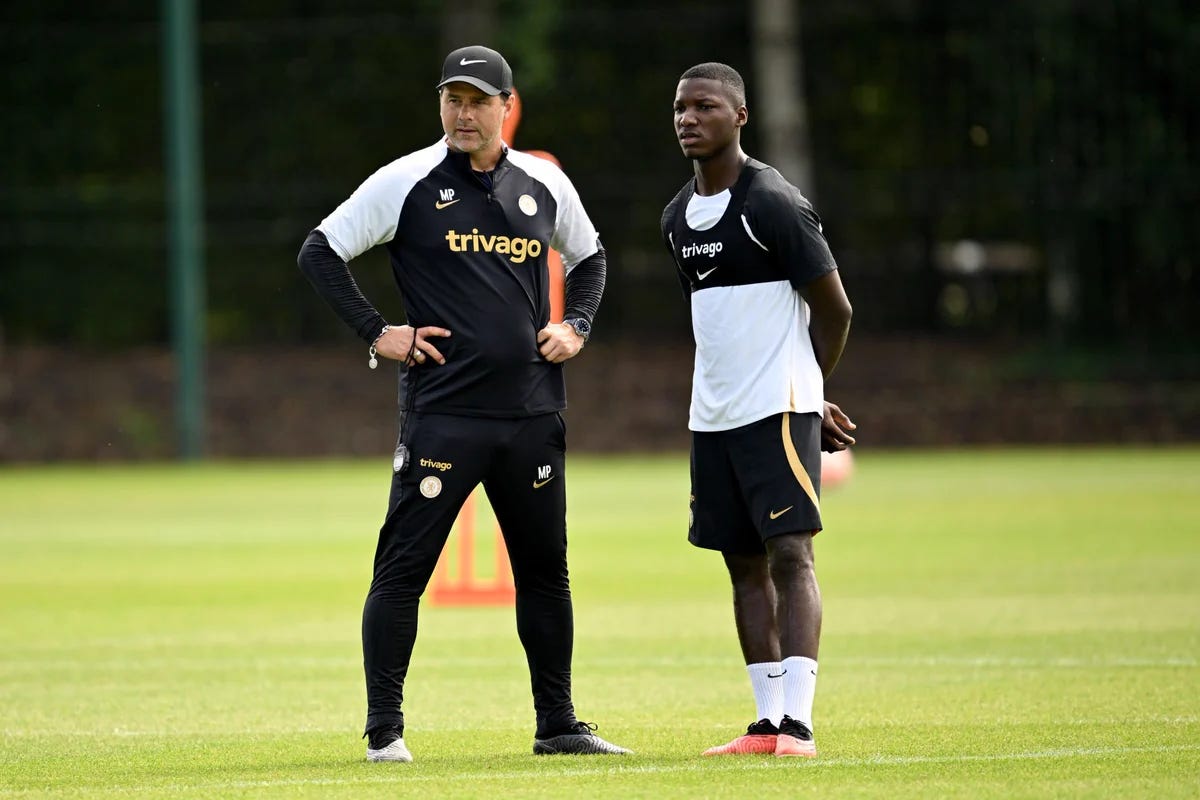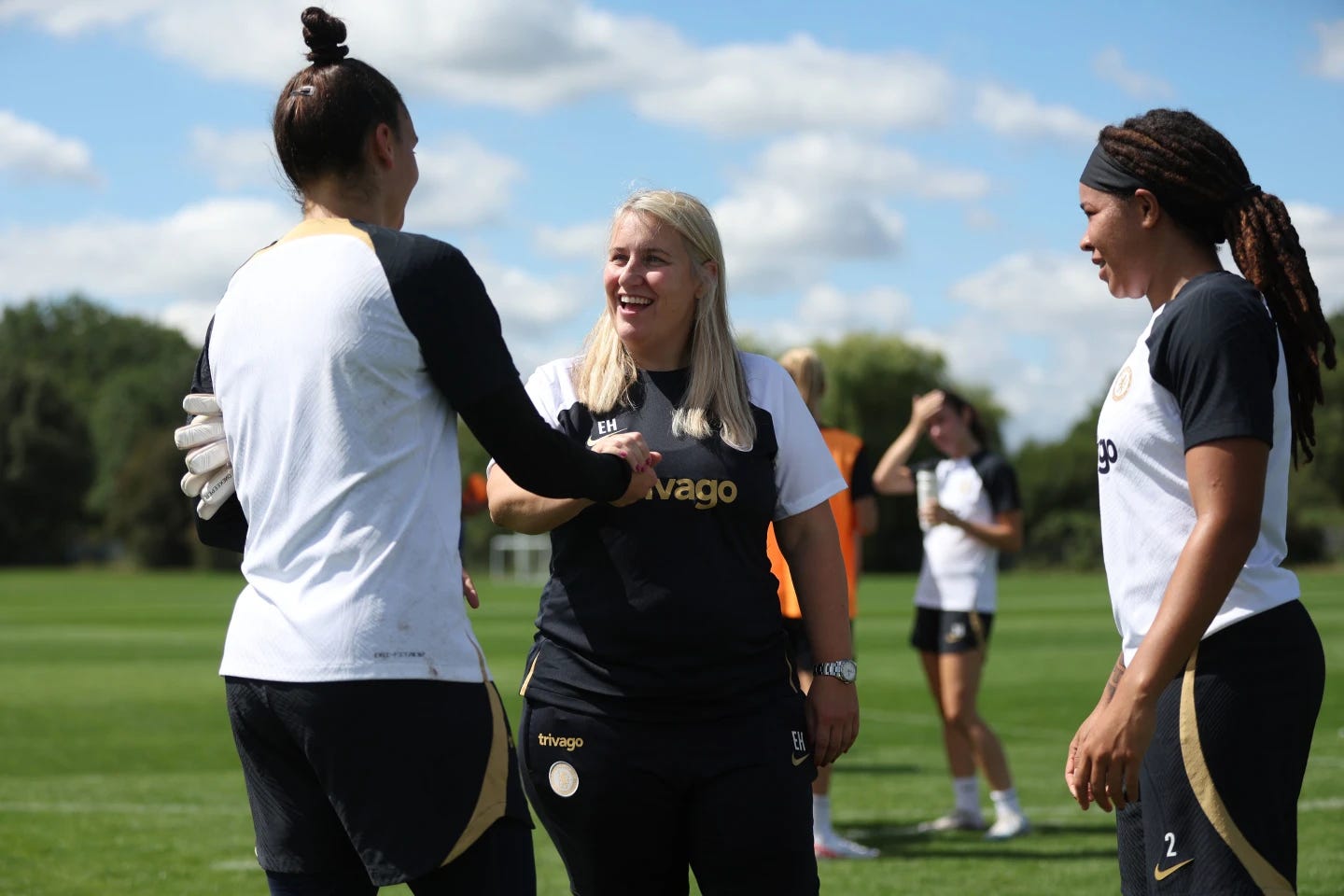Understanding How Our Owners Think & Their Vision
Owning Chelsea from a Private Equity Investment perspective
This week one of our co-owners, Clearlake Capital co-founder Jose E. Feliciano made some public comments about Chelsea to the Financial Times and a private equity conference in Paris.
It made me wonder that if we could get inside the thought processes of Private Equity Investors like Feliciano, co-Clearlake founder Behdad Eghbali, our majority owners, who spoke on Chelsea in November 2022 and indeed chairman and co-owner Todd Boehly, it might help us understand more their vision for Chelsea. We have quotes from this year and last which can help us too.
Now to be clear, I’m not an expert on private equity investors and nor am I one. I’ve done as much research as I can, and found quotes from our owners to try and explain it in way we can all understand. It might not be perfect, but I think it’s reasonably accurate.
So how do private equity investors actually think? Are they primarily concerned with short term gains (like selling players), or the value of the overall asset increasing over the long term?
The answer, from what I’ve read, is the latter.
Investors buy equities, or shares in companies because they expect the company's value—and the value of their shares—will rise. Investors profit if they can sell their shares for more than the cost, resulting in what’s called ‘capital gains’.
Essentially, our owners will have bought Chelsea (for a total of £2.5 billion, with £1.75b investment guaranteed on top), with the intention of increasing the value of their investment or ‘shares’ in Chelsea.
So this brings us to the obvious question, how do you increase the value of a football club?
Do you:
Allow them to become a mid table, top 6 club, sell your best players for profit, not win trophies, become mid table?
Or:
Build a team to achieve sustained success over the long term, winning major trophies, playing in the Champions League, increasing commercial and match-day/fan revenue in the process?
Well we have quotes from both Eghbali from November 2022, and Feliciano this week which give us the clear answer from an Private Equity Investor point of view:
“Like anything you've got to put a good product on the field. You've got to win. Your content, your asset is that play and I think the opportunity to make it a platform is there.”
Behdad Eghbali, Nov 2022
***
“Ultimately, we are extremely aligned with that supporter and fan base because the best way to make our club more valuable is to win.”
Jose Feliciano, FT Sept 2023
I think this is pretty definitive. The owners are here to win. To create a team which is winning matches and trophies. This explains the 100 point target which was reported this week, which (not) coincidentally is the biggest winning points total to ever win the Premier League.
A winning team gives you the platform to grow the football club on the financial and business side, and of course that increases the value of the club, their investment.
This also helps explain the huge investment in young talent. When you’re spending big on young talent, you’re investing in talent who can be part of your team for 6, 7,8 years or more, who will either spend their career with you, or leave potentially for a profit. Either way, the football club ultimately benefits. This is unquestionably a better long term investment than spending £97m on a 29 year old who will only be in their prime for 2-3 years and whose value will only go down.
No signing is without risk, but easier to take a risk on a young talent whose value will at least remain similar for a few years as young potential, than signing a 29 year old dud who you’ll never get your money back on. (ahem, Romelu Lukaku, ahem).
Now the pay off is that with young players, you need time for them to develop and reach their prime, so the path to success will be longer, but the gamble is when those players mature, individually and as a team, the success will be sustained, not require much more investment, and the team will continue to improve every year for several years. It’s a longer term perspective. It means short term pain, like maybe not getting Champions League football for a couple of years, but long term it can deliver sustained success at the absolute top level, which in turn delivers more commercial revenue, prize money, growth in the fanbase, a more engaged fanbase which all helps the club grow in value.
In terms of managers/head coaches, you invest in a manager who can develop the team, help them reach their potential, and get the team to where you want them to be, who is in line with your vision, and willing to work with you. You accept with young talent the process will take a couple of years to reach fruition and stick by them unless it becomes disastrous (as in, relegation form).
In investment terms, this is someone who oversees the ‘asset’ and ensures it develops and grows in value, the sporting directors and scouts spot potential player investments to aid the team or the club. Ultimately the coach gets the best from your players and makes them into a winning team. It may be in 2-3 years the primary role of the coach goes from mainly developing talent into winning trophies (whilst continuing to improve and develop players) - so either the coach adapts or you hire a new coach. This is how the owners will be thinking.
This all sounds very cold and business-like, but I’m trying to explain it from their perspective, rather than that of a fan.
The owners will likely be asking the scouts, sporting directors, and data experts, “What kind of players,. what kind of squad, what player profiles do you need to have to be able to achieve this 100 points every season?”. They will see any player who can contribute towards this as an investment, who can create a domino effect which ultimately delivers for them financially.
Better players and a better team, in theory, deliver in points, and ultimately more points, increases your chances of trophies, and will ultimately deliver more numbers in terms of commercial deals, TV money, and more stadium revenue as there are more games. This, as we know by now, increases the value of the club, so it's in the owner's interest to invest in players who they know can deliver this, and minimise the risk as much as possible.
Again, this explains the hiring of elite scouts like Joe Shields, and overhauling and upgrading the data department. This is also why you upgrade Cobham, because it can deliver better conditioning, fitness, well being and medical outcomes, better performances, and the same knock on effect.
On the Chelsea Women’s side they have again, invested a lot in the team, and intend to have more women’s games played at Stamford Bridge. This again, increases revenue into the club, gets more fans to women’s games (which I am HUGELY in favour of) as well as serving their wider goal of making Chelsea more valuable as a football club. They’ve even hired an executive to create a separate revenue stream for the women's team, which is unprecedented.
Speaking of the executive side, there’s been more hires there too. Chelsea recently appointed Chris Jurasek from Clearlake as CEO, as well James Murray and Casper Stylsvig from AC Milan as the Chief of Staff and on the marketing side respectively. Murray also worked for Arsenal as Head of Business Strategy for 5 years, so has huge experience at top clubs and the PL. Stylsvig is credited as turning AC Milan into one of the most profitable clubs in Serie A in recent years. As on the pitch, they are hiring best in class from big clubs, with proven experience, this time to increase revenue from the commercial side, monetising the fanbase (again, hate this term), and improving fan experience, to make Chelsea more profitable. Again, this all contributes to the wider goal of increasing the value of the club.
All of these appointments are ultimately seen from an investment point of view, as investing in every area of the club creates a domino effect which eventually increases the value of the club as a whole.
Indeed, Feliciano made clear the owners financial goals in terms of revenue at the Bloomberg conference last year:
“We think we have an incredible opportunity to double revenue. We think we have one of the best media properties and sport properties in the world where we can get to a £1 billion of revenue.””
Jose Feliciano, Bloomberg 2022
This makes their revenue goals pretty clear and explains all the hires they’ve made. They’re absolutely serious about making Chelsea one of the most successful clubs in world football, both from a sporting and financial perspective, and as we’ve seen, they believe these two are intrinsically connected. If you have a “100 point team” which gets there, or close at least, every year, then on pitch success, and as such your revenues and the value of the club, will go up exponentially.
But the BIG caveat with the men's squad investment, is that it won’t be a 100 point team for 3-4 years. The investment is over a minimum of 10 years, the amount of time before they are legally allowed to sell the club, and you’d expect ongoing improvement from young players which combined with further player investment can take you to the 100 point goal.
Bottom line, no one can doubt the ambition of the owners. The cynical view they are interested only in ‘pure profit’ from academy players as their way to make money, is far from the truth. They want a winning Chelsea team, who can make near 100 points every season, and they also want to maximise Chelsea’s commercial and financial potential, which has been neglected for years, to make £1 billion a year in gross revenue.
The good thing about all this for me as a long-term fan, is having seen Chelsea have two periods of success which resulted in debt - to banks and to Roman Abramovich, which thankfully, he wrote off - it will allow us to achieve and pay for success and see the club financially secure, indeed wealthy, in its own right. We will, if it goes well, never need to rely on others, and won’t be in danger of liquidation every 20 years. And this is good for the long term health and stability of the football club.
In the short term it will be difficult, there is no doubt. In the short term people may not see what the owners are doing, and indeed may don’t, or doubt their intentions, especially when things are bad on the pitch. However its worth noting Todd Boehly at the Dodgers had a difficult first two years, before they became serial winners. Then he successfully doubled their revenue in 10 years, and thus increased the value of his own investment. The same will be the plan at Chelsea, but on a bigger scale. Indeed, Feliciano said this week:
"We’re taking a little bit of pain upfront."
- Jose Feliciano
The challenge for the owners here, is that football fans in general, and especially Chelsea fans, tend to think in the immediate, and many in the simplistic, emotive, either-or, binary way of thinking and just seeing what's happening now. The owners, directors and manager don’t think this way.
It’s important however, for the owners to try and maintain that balance of the need for immediate results, whilst sticking to this long term vision - because in my view the long term vision is the right one for the club on and off the pitch
The pitch, the vision, as I see it, is exciting. A Chelsea men’s and women’s playing regular Champions League football in a 60,000 stadium, the best in London, with a fan-park nearby. Competing every season for the league and CL titles, winning trophies regularly, only needing one or two signings a season, with a feeder of top young talent coming into the squad regularly. Off the pitch, it’s a club making huge profits from commercial revenue, stadium revenue and selling the young talent who don’t make it from our network of clubs, able to attract and sign the best talent in the world. A financially self-sustainable club who can comfortably pay for their success from commercial, TV and CL revenue alone, with no need to sell players every summer because amortisation costs are covered by club revenue, which they ultimately want to double.
If this happens, there’s no doubt the club will be worth two or three times what it was bought for in 2022, which means the £1.5 billion that Clearlake invested of the total purchase price of £2.5 billion could then be worth £4.5 billion - a £3 billion profit. The club itself would be worth about £7.5 billion then.
At that point, they will either keep the club or sell it, likely to some Saudi owner. Keeping it will be tempting however, as in all likelihood the value of the club will only go up, and they can sell small percentages of their investment, to allow for more investment in the club, and simply to make profit, and still remain majority owners.
Doubling or trebling their initial investment will make the owners way more money than any short term profit from player sales or even selling players at a ‘pure profit’. The club only needs to do this in the short term, to cover us under FFP and PL financial rules until commercial revenue goes up sufficiently.
The club is unlikely to make a huge profit in the short-term anyhow given our investment on the pitch so far, and investors like our owners see long-term gains more than short term ones.
Of course, there is risk involved. A project like this has not been attempted before in football, and equity investors are by nature risk takers. But the potential reward could be incredible.
I’m confident even if it doesn’t get exactly where the owners want, it's likely Chelsea will improve significantly on the pitch in the coming years - and ultimately as fans, that’s what we all want.
The Score







Very interesting and thought-provoking article.
It’s useful to try and understand the motivation and strategy of a group of people it would be easy to dismiss with a string of expletives.
I want success as much as the next Chelsea fan, and am finding it difficult to comprehend how we are in our current position.
I also am keen for us to not continue the “hire’em and fire ‘em” philosophy, when a poor string of results bought instant dismissal for the manager and a large payout.
I am trying to be patient and trust that the positive signs that I see and hear will grow into sustained success. It’s not good enough at the moment, but I believe it will be. Keep the faith!!
very thorough and informative article - good read. Let's hope and pray it all works through and we have the patience. Rome wasn't built in a day!